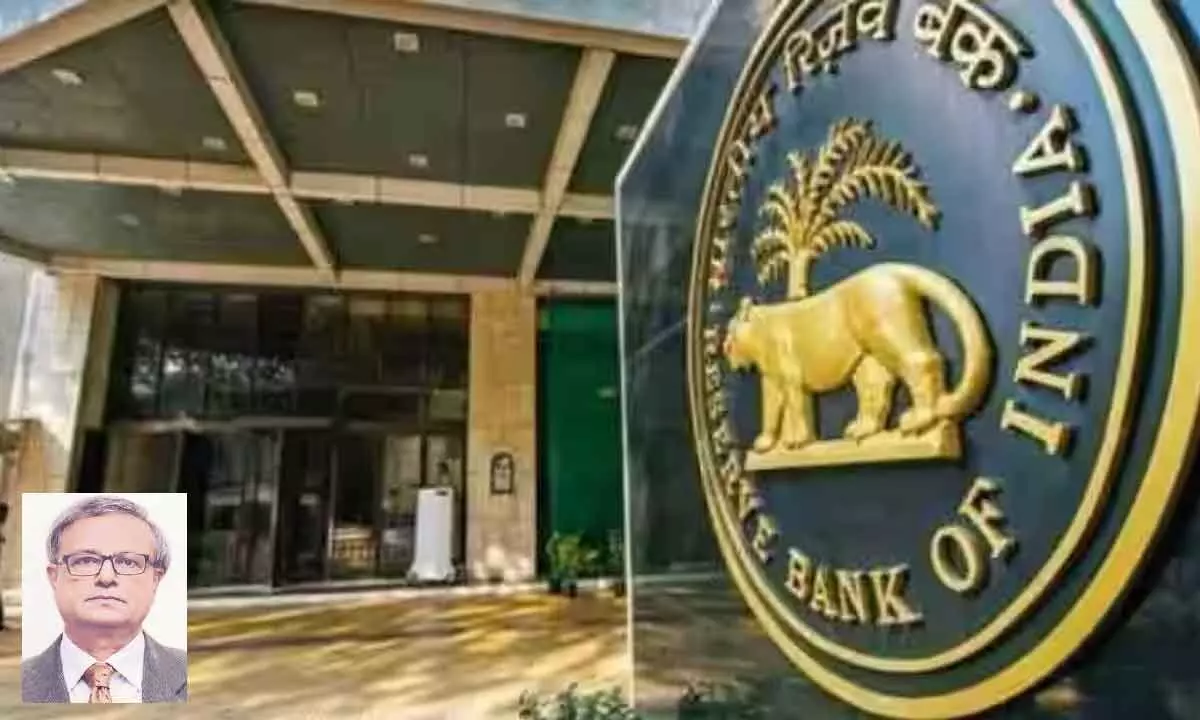Reversion to old pension scheme a major risk for States: RBI
In the event of reversion, the pension burden on States will be higher by 4.5 times the current burden on account of NPS, in the period 2023 to 2084, says a RBI study
image for illustrative purpose

RBI has published a study carried out by its research team on the fiscal cost to State governments in reverting to OPS from the National Pension System (NPS), in its September issue of the monthly bulletin. The study is based on plausible assumptions on the future pension liabilities of State governments and provides a view of the looming problems that States face if they revert to OPS. The study, no doubt, has been prompted by the recent decisions taken by some State to revert to OPS from NPS, and will serve as a timely reminder to them of the problems they are likely to face going forward.
The States which have decided to switch back to OPS are ruled by Opposition parties, which give a political colour to their decisions, but this is a charge denied by the concerned States, who state that their decisions have been taken in the best interests of their employees and have been thought through.
Notwithstanding this, the RBI study shows that in the event of reversion, the pension burden on States will be higher by 4.5 times the current burden on account of NPS, in the period 2023 to 2084. This will happen because States will have to continue meeting pension obligations to their employees from their budgets, which would not be the case under NPS, where the invested contributions from States and employees will provide pension, and there will be no burden on State exchequers on this account.
This is a situation which surely no State would like to face, especially given that for many of them, their finances are strained, as brought out in the RBI report titled ‘State Finance – a Risk Analysis’ in 2022.
Given the apparently obvious disadvantages of reverting to OPS, the question remains as to what has prompted some States to take this decision. Some possibilities are discussed below.
The RBI study shows that the pension outgo of States has been rising, from 0.6 per cent of GDP in 1991-92 to 1.7 per cent in 2022-23, with the rise most pronounced in the last 12-13 years, which coincides with the introduction of NPS. The pension outgo is on account of payments under OPS and contributions under NPS, and the introduction of NPS has increased the outgo, albeit marginally, by 0.1 per cent of GDP per annum. Further, the study also shows that net savings on account of continuing with NPS will accrue only after 2040, which, to many States, may appear to be too distant a prospect.
The RBI study further shows that the pension outgo of States is much higher than that of the Centre, which has implemented NPS since 2004. The ratio of pension to GDP of States was 1.7 per cent compared with 0.9 per cent of the Centre in 2022-23, underlining the greater burden on States.
There is an immediate gain to States in stopping NPS contributions, which, according to the RBI study is nearly Rs 0.50 lakh crores per year, out of the total pension outgo of Rs 4.50 lakh crore. Many States, such as Rajasthan, Punjab, Himachal Pradesh, which have withdrawn from NPS have launched new social security schemes and the saving in NPS contributions will help finance these new schemes.
One of the often repeated criticism of NPS is that unlike the OPS, where the pension amount is known in advance, there is uncertainty of pension quantum in NPS, because of it being linked to market returns on NPS investments. Though the performance of NPS since inception has been impressive, comparable to the best in class, these apprehensions continue to linger, leading to constant demands by State government employees to revert to OPS.
States which withdraw from NPS would expect to get back the amount remitted so far, which, inclusive of employees’ contribution and returns, is about Rs 5 lakh crore as per PFRDA bulletin of July 2023. Though the claims made for return of NPS amount have not been upheld so far, and not been commented upon in the RBI study, the States will hope to get back this amount, which would give a boost to their finances.
States may feel that there are enough reasons for them to opt out of NPS but the findings of the RBI study clearly show that the short term benefits of reverting to OPS will come at a very high cost to them in the long run, being of the order of 4.5 times the current burden of NPS.
States must remember that the need to introduce NPS was felt because of the strain that pension payments was causing on their finances, and a retreat to the old order will be a case of déjà vu, only aggravating their financial problems. What is more, increasing longevity could steepen the burden on State exchequers further under OPS.
States must realise that though there may be short term benefits to withdrawing from NPS, the long term consequences will be severe. For States, clearly, a bird in the hand is not worth two in the bush.
(The author is former chairman of Pension Fund Regulatory and Development Authority (PFRDA)

